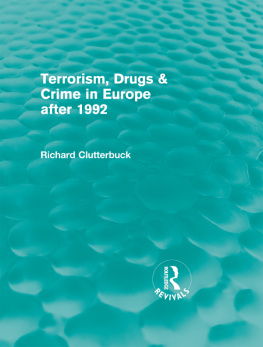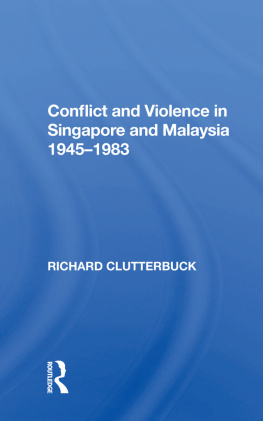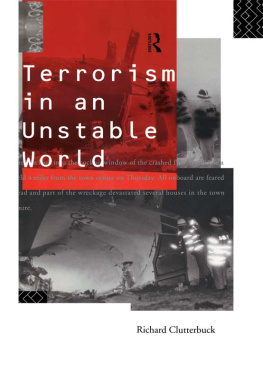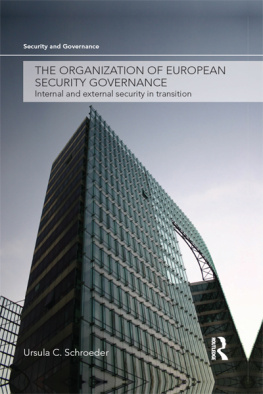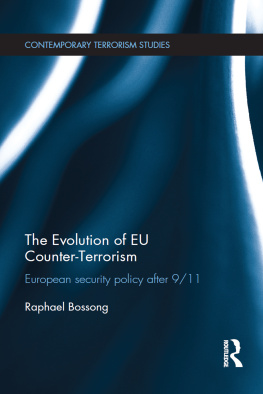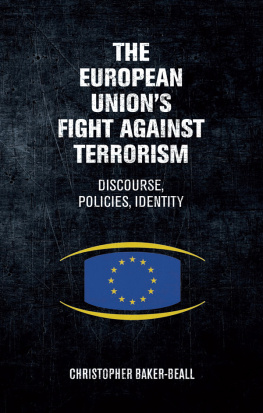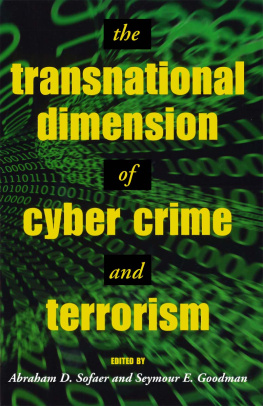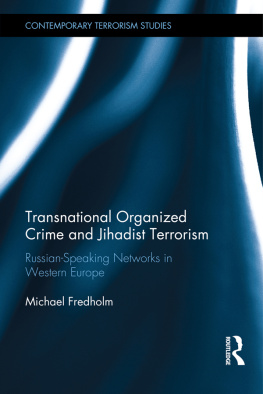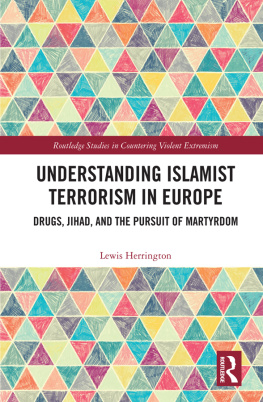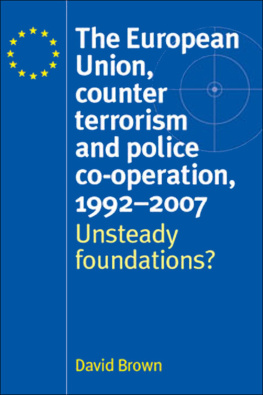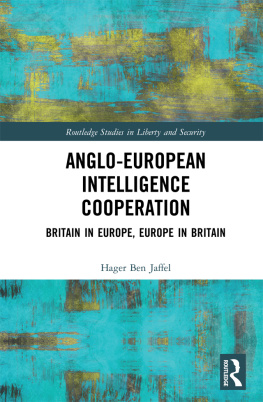First published in 1990
by Routledge
This edition first published in 2011 by Routledge
2 Park Square, Milton Park, Abingdon, Oxon, OX14 4RN
Simultaneously published in the USA and Canada
by Routledge
270 Madison Avenue, New York, NY 10016
Routledge is an imprint of the Taylor & Francis Group, an informa business
1990 Richard Clutterbuck
All rights reserved. No part of this book may be reprinted or reproduced or utilised in any form or by any electronic, mechanical, or other means, now known or hereafter invented, including photocopying and recording, or in any information storage or retrieval system, without permission in writing from the publishers.
Publishers Note
The publisher has gone to great lengths to ensure the quality of this reprint but points out that some imperfections in the original copies may be apparent.
Disclaimer
The publisher has made every effort to trace copyright holders and welcomes correspondence from those they have been unable to contact.
A Library of Congress record exists under LC Control Number: 90008279
ISBN 13: 978-0-415-61620-1 (hbk)
Terrorism, Drugs and Crime in Europe after 1992
After 1992, the European Community will reap enormous economic benefits from opening its internal frontiers. But part of the price is that it will be easier for terrorists, drug traffickers and money launderers to operate and to evade capture, unless full use is made of new technological aids for catching them.
In this fascinating analysis of European security, Richard Clutterbuck confronts these problems. He looks at methods the EC countries have used in recent years security measures, computerized intelligence and changes in their laws and assesses which of these worked, which did not, and why. He describes the technology now becoming available, such as: preventing impersonation by digital recording of fingerprints, voice and vein patterns, and DNA; linking Europes national police computers; and detecting explosives by vapour sniffing and neutron bombardment. He makes radical proposals for airport security, fighting drugs, and overcoming the intimidation of witnesses and juries, and examines their implications for civil liberties. Finally, he foresees the exciting prospect of the USSR, the USA and a united Europe co-operating for the first time to overcome the common enemies of terrorism, drugs and international crime.
This book is essential reading for anyone concerned with European security, especially students of politics, international relations, criminology, and the law, as well as police officers, soldiers, politicians, lawyers, and journalists.
Other books by the same author
Across the River (as Richard Jocelyn), London, Constable, 1957.
The Long, Long War, New York, Praeger, and London, Cassel, 1966.
Protest and the Urban Guerrilla, London, Cassell, and New York, Abelard Schumann, 1973.
Riot and Revolution in Singapore and Malaya, 194863, London, Faber & Faber, 1973.
Living with Terrorism, London, Faber & Faber, and New York, Arlington House, 1975.
Guerrillas and Terrorists, London, Faber & Faber, 1977, and Athens, Ohio, Ohio University Press, 1980.
Kidnap and Ransom, London and Boston, Mass., Faber & Faber, 1978.
Britain in Agony, London, Faber & Faber, 1978, and Harmondsworth, Penguin, 1980.
The Media and Political Violence, London, Macmillan, and New Jersey, Humanities Press, 1981.
Industrial Conflict and Democracy, London, Macmillan, 1984.
Conflict and Violence in Singapore and Malaysia 194883, Boulder, Col., Westview Press, 1984, and Singapore, Graham Brash, 1985.
The Future of Political Violence, London, Macmillan, and New York, St Martins Press, 1986.
Kidnap, Hijack and Extortion, London, Macmillan, and New York, St Martins Press, 1987.
Terrorism and Guerrilla Warfare: Forecasts and Remedies, London, Routledge, 1990.
First published 1990
by Routledge
11 New Fetter Lane, London EC4P 4EE
Simultaneously published in the USA and Canada
by Routledge
a division of Routledge, Chapman and Hall, Inc.
29 West 35th Street, New York, NY 10001
1990 Richard Clutterbuck
Phototypeset in 10pt Times by
Mews Photosetting, Beckenham, Kent
Printed and bound in Great Britain by
Biddies Ltd, Guildford and Kings Lynn
All rights reserved. No part of this book may be reprinted or reproduced or utilized in any form or by any electronic, mechanical, or other means, now known or hereafter invented, including photocopying and recording, or in any information storage or retrieval system, without permission in writing from the publishers.
British Library Cataloguing in Publication Data
Clutterbuck, Richard
Terrorism, drugs and crime in Europe after 1992.
1. European Community countries. Terrorism. Prevention
I. Title
363.32094
ISBN 0-415-05443-5
0-415-05843-0(Pb)
Library of Congress Cataloging in Publication Data
Clutterbuck, Richard L.
Terrorism, drugs, and crime in Europe after 1992 / Richard Clutterbuck
p. cm.
Includes bibliographical references (p.
ISBN 0-415-05443-5 0-415-05843-0 (Pb)
1. Criminal justice. Administration of European Economic Community countries. 2. Terrorism European Economic Community countries. 3. Drug traffic European Economic Community countries. 4. Crime European Economic Community countries. 5. Europe 1992.
I. Title.
HV9960.E86C58 1990
When the internal borders of the European Community are opened soon after the end of 1992, the benefits to EC countries will be enormous. The present delays of truck traffic at border checks are estimated as costing as much as 5 per cent of the ECs Gross Domestic Product, but the acceleration of economic activity unleashed by free flow of people, goods, capital and services will generate a great deal more than that. The history of the USA illustrates this. Though their states are internally self-governing, they constitute a sovereign territory of 3.5 million square miles, with a vast range of raw materials from arctic, temperate and tropical regions, with the products of industry moving freely by an unfettered land, sea and air transport system to a market comprising over 210 million of the worlds most affluent people. This formula has provided a very high standard of living and the ability to exert enormous influence on the world by virtue of their national wealth.

